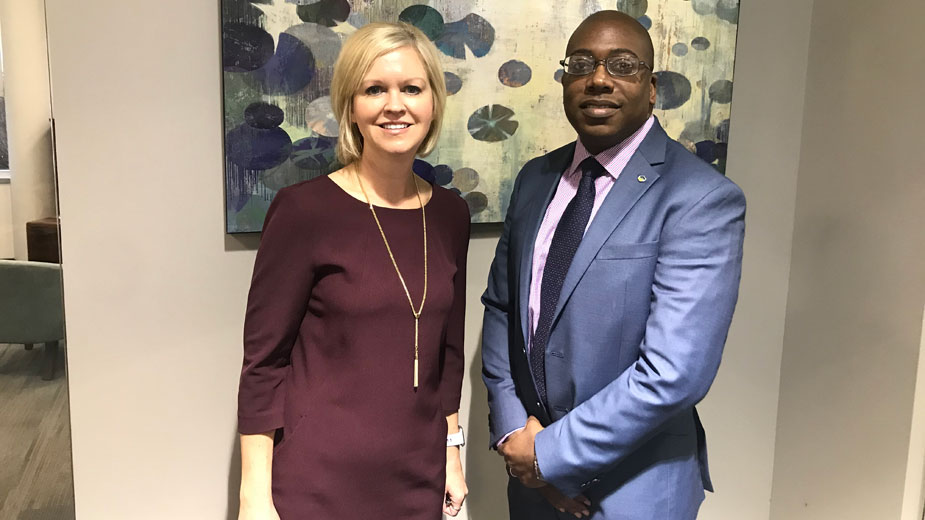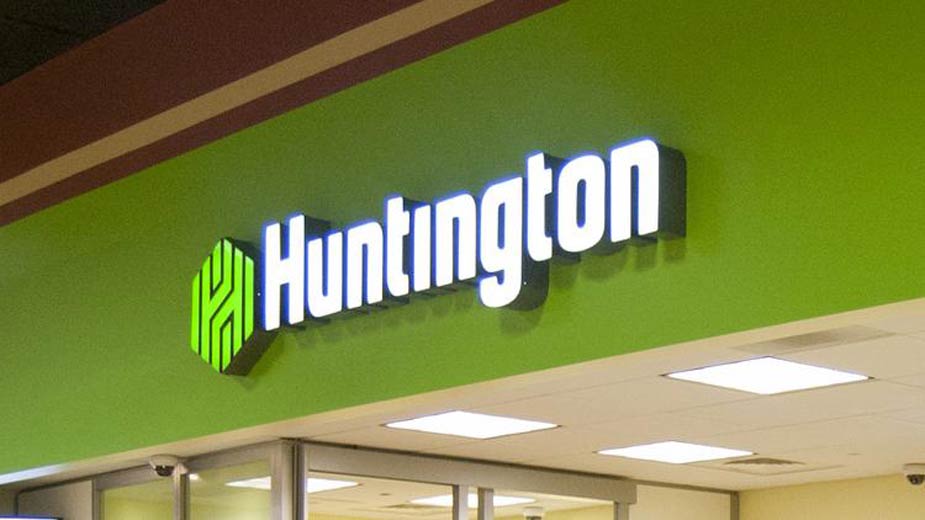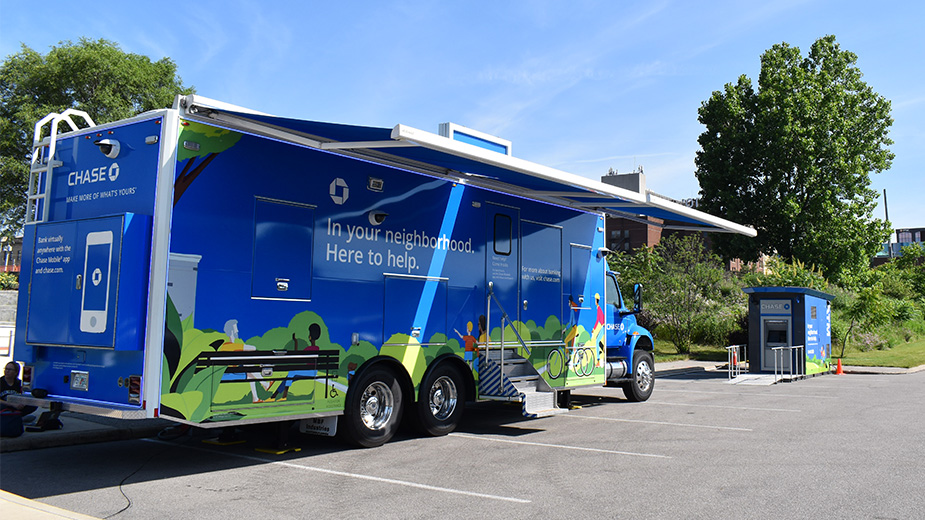It Can Pay to Use Credit Cards During the Holidays
YOUNGSTOWN, Ohio – Year-over-year, banks report use of credit cards is increasing, a trend likely to accelerate this holiday season when the number of transactions typically spikes as consumers use their cards to buy gifts.
According to the 2018 Holiday Shopping Report from NerdWallet, 73% of shoppers plan to use a credit card to pay for gifts, up from 58% last year. Those using a card estimate they’ll charge $650 on average and pay off the charges over three months.
“You tend to see usage go up as the economy hums and we’ve seen that over the last 10 to 12 months. But generally all customer transactions will increase in a hot economy,” says David Bowen, director of consumer product management at First National Bank of Pennsylvania. “You’ll see transaction usage go up in the holiday season.”
First National offers three options to its customers: a Visa ScoreCard Rewards credit card for consumers and two business credit cards, the Solutions Business card and Solutions Purchasing card.
For those who plan on buying gifts on a credit card and paying it off right away, Bowen suggests using the ScoreCard Rewards credit card, since the buyer can earn one point for each dollar spent. The points accumulate without an expiration date and can be used on anything, including electronics, gift cards and travel expenses.
“A credit card is a credit card is a credit card. What makes them unique is the rewards that come with them,” Bowen says. “It’s a lot of fun to have a big bank of rewards points coming up on the holiday season and to get some free stuff for the holidays.”
All three of the First National cards have no annual fee, but offer different annual percentage rates, which reflect the total interest charged in one year. As of September, the rate of the rewards card is 16.74% and the business card rates are 14.99%. The spending limit on the cards varies for each customer.
The business credit cards offer a rewards program, but instead of receiving points to spend on merchandise and travel, the cardholder will receive cash back to spend on his business or to deposit into an account.
If you make credit card payments on time, having a rewards card is beneficial, but Bowen warns customers not to get in over their heads.
“The No. 1 thing anyone can do is make sure you make your payments on time,” he says. “Some people like to pay off their card every month and others revolve it a little bit. But I encourage people to make the minimum payment at least on time every month.”
For those who have been denied a credit card but want to build their credit up, Home Savings Bank offers its Visa Secured card. The card works by having a customer give Home Savings a dollar amount to hold as collateral. The customer can then use the card as he normally would and make payments to re-establish his credit.
“After a certain amount of time, depending on how usage goes or the payments, they could be upgraded to a standard credit card and we would return those [collateral] funds to them,” says Zach Gay, product manager for retail banking at Home Savings. “It’s a good place to start building credit back.”
Home Savings offers four other credit cards to consumers: Real Rewards and Platinum cards by Visa and Cash Rewards and Premier Rewards cards by American Express.
Among the four, the most popular card is the nonrewards Visa Platinum, Gay says, which charges no interest for the first 15 months and no annual fee.
Rewards cards offer redeemable points for merchandise, gift cards and travel expenses. The Cash Rewards and Real Rewards cards offer 0% interest the first six months and carry no annual fee. The Premier Rewards card has a 15.99% to 24.99% annual percentage rate and has a $99 annual fee after the first year.
Since chip technology on cards became standard in 2015, and with other technologies banks offer customers to monitor spending on their cards, credit cards today are more secure from fraud than ever.
Through its mobile app, Home Savings offers customers a money management tool to help manage everyday cash flow. It can help build one’s credit score by monitoring how much one spends on his card, but can also be used as a security measure.
“You can set up alerts. So if it would swipe for more than $100 you could be notified in a text or email or in the app itself,” Gay says.
And it offers geolocation services, which one can turn on to use with his credit card. “So if your cellphone is not near where your card is being used, it’s going to get declined,” he adds.
At Huntington Bank, the MasterCard Voice credit card allows customers to choose whether they want a card with rewards or a lower rate.
The rewards card allows the customer to receive cash back on purchases in 10 categories, including gasoline stations, travel and entertainment, grocery stores and restaurants. One gets to choose a category to receive 3% cash back and 1% cash back on purchases in all other categories.
The rewards card has an annual percentage rate of 13.99% to 27.99% versus the lower rate card, which is 11.99% to 25.99%. Both have no annual fee.
Huntington also offers the no-annual-fee Voice Business credit card, which allows 4% cash back on one of the 10 categories offered.
If a customer neglects to pay the balance on his credit card, Huntington gives customers a 24-hour grace period to make a payment and avoid a fee.
“It’s made a huge difference in the lives of our customers,” says William Shivers, Huntington Bank Canton and Mahoning Valley regional president. “Everyone has a lot of responsibility in their life and knowing we have their back in case they miss a payment because they’re distracted with something else is really great.”
To build a record of good credit, Shivers says don’t use too much available credit.
“Try not to use more than 30% of your available credit,” he says. “Many times people use it and it becomes so easy to do and the credit availability increases. All of the sudden you get a large balance and you can’t make those monthly payments.”
Unless one is using a rewards card and has an avenue to repay what he spent, Shivers suggests using credit cards only in an emergency.
“Don’t use too much available credit in case something does come up and you do need it for something,” he says. “If your furnace breaks over the holidays and you need to use your credit card to pay for it, that’s an emergency.”
At Chemical Bank, retail sales manager Kimberly Foster agrees that customers should only use 30% to 40% of their available credit. “Because once you go over that to 50%, it can hurt your credit,” she says.
Chemical Bank offers three credit cards: MasterCard Complete Rewards card, Platinum Edition card and a Secured card for those who need to establish or build credit.
Complete Rewards offers 1% cash back on purchases, 1.5% cash back if you redeem points in a checking or savings account, 0% interest for the first six billing cycles and there’s no annual fee.
The Platinum Edition card is “more for a person who’s going to hold a balance, or has a balance with a credit card, where they want to transfer it over to that card because it gives you 0% interest for the first 15 billing cycles,” says Toussaint Blake, banking center manager for Chemical.
Blake helps customers choose which card is best for them by asking how they’ll use the card, how important cash-back rewards are, how long it will take them to pay it off and how important the rate is.
“Banks try to keep it simple to make it easier for customers to have an avenue of where they want to go credit-card-wise,” Blake says. “When you’re navigating that conversation with a customer, you want to find out how they’re looking to use that credit card, how it fits into their plan and what way they want to use that card for in the future.”
If you want to be able to do things such as book an airplane ticket, make a hotel reservation or rent a car, you need some type of credit card. Blake and Foster agree that most people need a credit card.
“There’s certain things you can’t do without a credit card,” Blake says. “If you want to fly somewhere, how would you without a credit card?”
Foster adds, “And for emergency funds too, you never know if you’re stranded and you need extra money. You always have that security in your wallet.”
Pictured: Chemical Bank executives Kimberly Foster and Toussaint Blake advise consumers on how best to use a credit card.
Copyright 2024 The Business Journal, Youngstown, Ohio.


